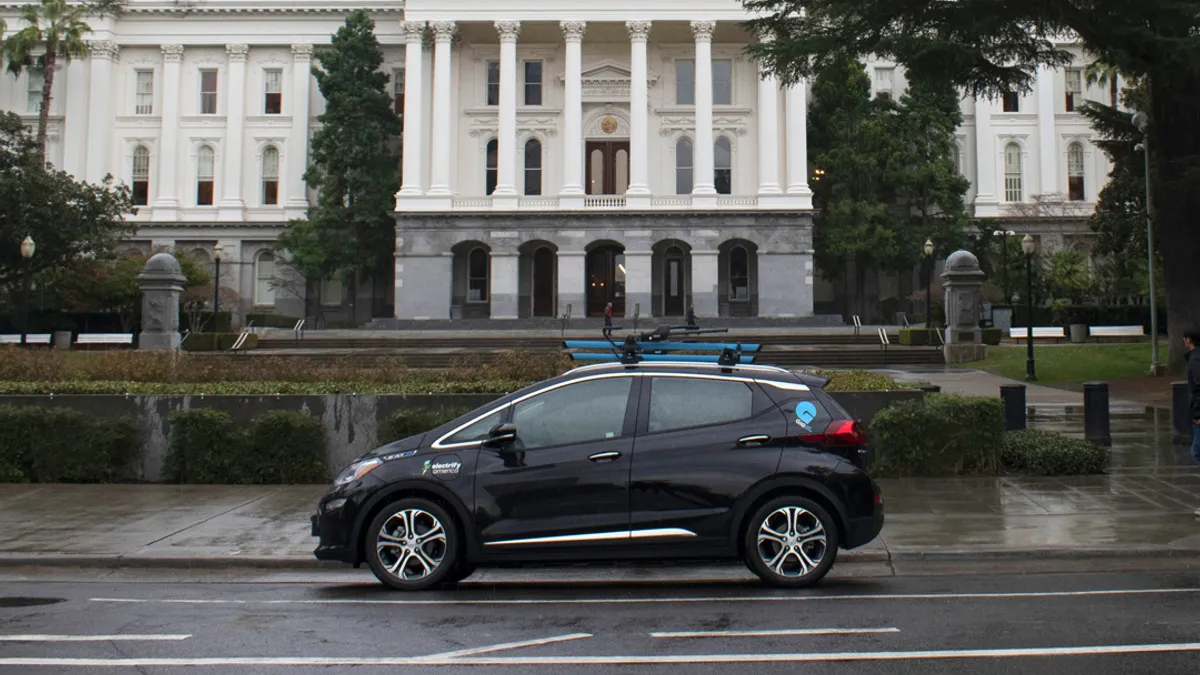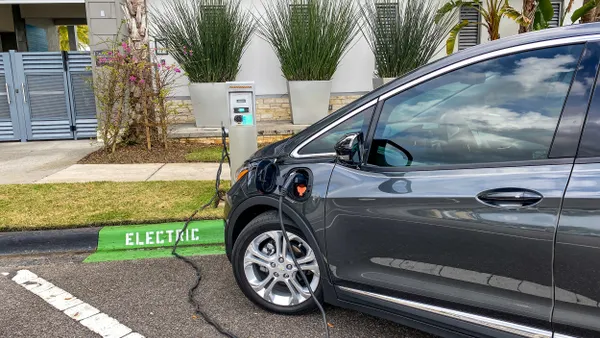Dive Brief:
- Gig Car Share, the electric car-sharing service sponsored by AAA, is launching a full 260-vehicle fleet in Sacramento, CA this week. According to a March blog post by the city, Gig president Jason Haight said the network will be the largest electric shared fleet in the country.
- Gig allows members to pick up and drop off cars within a 13-square-mile "HomeZone" covering central Sacramento and some surrounding neighborhoods. The fleet is made up of Chevy Bolt electric vehicles (EVs).
- Membership is free, and cars are available for $0.40 per minute, $15 per hour or $85 per day (Gig says it will calculate the lowest rate option). In an agreement with the city, Gig cars will also be allowed to exceed posted time limits at city meters.
Dive Insight:
Gig is a major part of Sacramento’s $44 million campaign to get more EVs on the road, backed by Volkswagen’s Electrify America and paid for by settlement funds from the automaker’s emissions cheating scandal. Gig — along with a second electric car-share network called Envoy with 142 vehicles — is meant to replace trips that otherwise would have been taken in a gas-powered vehicle, and to get drivers familiar with EVs. The network grew out of AAA Northern California’s innovation lab in Berkeley and launched in the Bay Area in 2017 with Toyota Prius hybrid cars.
In a statement, Sacramento sustainability manager Jennifer Venema said Gig “lays the foundation to electrify transportation and make Sacramento a hub for advanced vehicle technologies." According to a study from the University of California, Berkeley Transportation Sustainability Research Center, every car-share vehicle can replace between seven and 11 privately owned cars, although research is mixed about whether shared networks are a cost-effective replacement. Notably, Gig says that 50% of its service area includes disadvantaged and low-income areas, which typically have a higher barrier to accessing EVs.
That builds on Sacramento’s other electrification efforts, part of the city’s goal to becoming the "ZEV Capital of California," with a goal of putting 75,000 zero-emission vehicles on the road by 2025. The city has also used its Volkswagen settlement money to deploy more electric bus routes and an on-demand electric shuttle service to reduce the climate impact of public transit.











